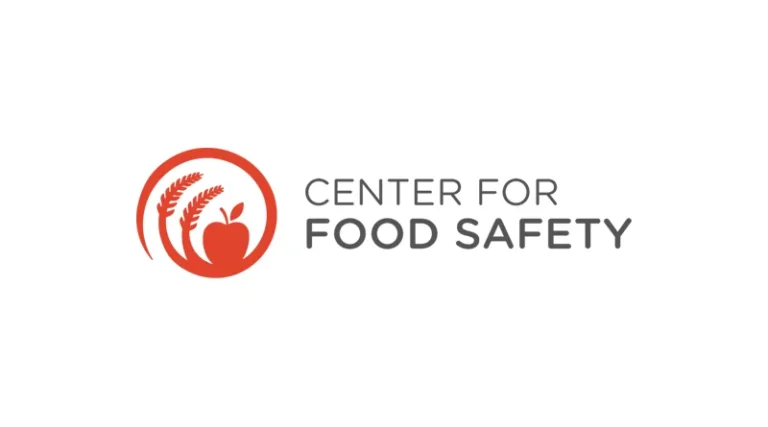
A Few Crumbs Instead of the Healthy Meal Promised: The MAHA Commission Betrays the MAHA Movement
11 September 2025, Washington: Today, the Make America Healthy Again (MAHA) Commission released its Strategy Report—the final product we previewed when a draft was leaked last month. At that time, the Center for Food Safety (CFS) warned that the Commission appeared to have abandoned its earlier recognition of the harms pesticides cause to children’s health. Unfortunately, the final report confirms our fears and fails to offer any concrete regulatory steps towards achieving the Commission’s stated goals.
Instead, the Commission doubled down on hollow rhetoric. Its only mention of pesticides is an Orwellian promise to ensure “confidence in EPA’s robust pesticide review procedures”—procedures courts have repeatedly found unlawful and that frontline communities know cannot be trusted. Instead, it says that it will speed up pesticide approval and it will “partner” with the pesticide industry to “educate” the public about the “robust review” of EPA’s regulation of pesticides to provide the public with “confidence.”
It fails to address urgent core issues such as the continued approval and overuse of hazardous toxic pesticides like dicamba, glyphosate, and atrazine, and the lobbying campaign of the pesticide industry seeking to be shielded from legal liability for their products’ health harms.
“Let me be crystal clear,” explains George Kimbrell, Legal Director and Co-Executive Director of the CFS, “Based on my now 21 years as a public interest attorney and advocate specializing in food system oversight, I can tell you that there is nothing “robust” about EPA’s regulation of pesticides. In reality it is the antithesis of robust: it is an oversight system filled with data holes and regulation loopholes, lacking in public transparency, which has instead required decades of dogged public interest litigation to get EPA to do its most basic duties. Worse, EPA’s office of pesticide products is a paradigmatic example of an agency capture, where political appointees at the agency put the industry’s profits over its health and safety duties time and time again, as instances exposed as undue influence and political taint have shown time and time again. So, the idea that the MAHA Report will “educate” the public about how “robust” a job EPA is doing is profoundly counterfactual and the misleading word salad of authoritarian regimes.”
At CFS, we understand the importance of strong regulatory oversight and have had to continually force accountability where EPA has failed:
- In 2022, the Ninth Circuit sided with CFS and struck down EPA’s finding that glyphosate was safe.
- We won precedent-setting cases overturning EPA’s approvals of dicamba, after millions of acres of crops and natural habitat were damaged.
- Our litigation compelled EPA to finally test pesticides for endocrine disruption, after decades of delay.
- For years, we have challenged the approval of atrazine, a notorious hormone disruptor linked to birth defects, cancers, and fertility problems.
- For decades we have led the fight to stop the commercialization of GE crops that have been engineered to withstand exponential increases in toxic herbicides.
- Over a decade and a half ago we were of the first organizations to sound the alarm about neonicotinoid insecticides causing the collapse of bees and other pollinators, and worked ever since to protect them.
Indeed, this report signals business as usual: cosmetic reforms and industry-friendly talking points, while sidelining the urgent need to rein in pesticide overuse. The health of our children and farmworkers cannot wait for more empty promises.
As we said in response to the leaked draft, CFS will continue to do what the Commission has failed to do: watchdogging EPA, enforcing the law, and fighting for a food system that truly protects human health and the environment. The Report utterly betrays the MAHA movement for the moneyed interests of Industry.
Trump Administration Context:
The final MAHA Strategy Report reflects a pro-industry agenda evidenced across Trump’s second term.
In just the past 8 months, the administration has repeatedly supported the interests of an industrialized food system:
- Proposed a 2.5-year extension of foodborne illness traceability requirements we had previously won through litigation, prolonging the food safety crisis.
- Greenlit a flurry of new toxic pesticide approvals over the summer, including dicamba and several others containing PFAS, while refusing to restrict glyphosate or atrazine.
- Failed to shift incentives away from industrial commodity crops toward healthier fruit and vegetable production.
- Cancelled millions of dollars of support for small scale producers while continuing decades-long incentives for pesticide heavy commodity crops like corn and soy that underpin the ultra-processed food industry.
- Allowed the replacement of artificial dyes with “natural” GMO-based ingredients.
- Maintained U.S. approval of more than 85 pesticides banned in the EU and China—pesticides that make up over a quarter of all U.S. agricultural use.
- Offered no protections for pollinators like bees from neonicotinoids, and even considered denying Endangered Species Act protections for monarch butterflies.
Also Read: CNH to Establish New Tractor Manufacturing Plant in India as Part of Growth Strategy
📢 If You’re in Agriculture, Make Sure the Right People Hear Your Story.
From product launches to strategic announcements, Global Agriculture offers unmatched visibility across international agri-business markets. Connect with us at pr@global-agriculture.com to explore editorial and advertising opportunities that reach the right audience, worldwide.






